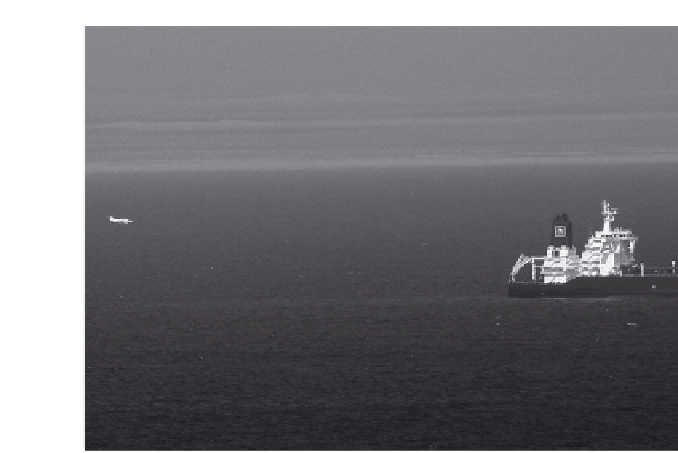Environmental Engineering Reference
In-Depth Information
A small aircraft flies over the hijacked Saudi tanker MV Sirius Star on 9 January
2008. It is thought that the plane parachuted a container of ransom payment to
the Somali pirates holding the vessel.
cal and economic leverage over the US and other oil consumers, which in
the aftermath of 9/11 would be seen as welcome.
In some corners of the Bush administration, oil was clearly a more
direct enticement. Paul Wolfowitz, the deputy defence secretary, forecast
that an invasion would be “self-financing”, with the US able to reim-
burse itself for its military costs out of Iraq's oil revenue. But most of
Washington's pre-invasion discussion about oil seems to have been fairly
sober. There was no push for Iraqi oil to be privatized and, as for OPEC,
the US view was that Iraq could not and should not be forced to leave the
oil cartel (of which it was a founding member).
And that was how events turned out in US-occupied Iraq after 2003.
Iraq stayed in OPEC (where it is still the only country not to have a pro-
duction quota, as was the case before 2003 when it was under UN sanc-
tions). Iraq has not privatized the ownership of its oil, and when Baghdad
eventually resumed in 2009 auctioning oil exploration and production
leases, US companies won no more than anyone else's share.































































